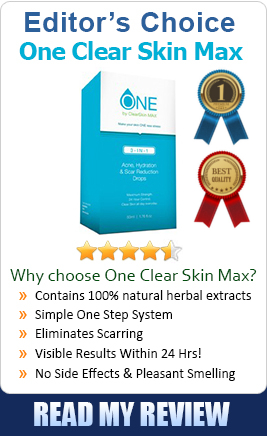
Drink plenty of water
Everyday about 17 million people in the United States alone, wake up, look at an acne or pimple and start scrubbing, washing, peeling and picking in the attempt to get rid of them and their marks. Most of these people are teenagers or young adults.
However, the good times don’t always end with the age, as adults suffer from this problem too. Sometimes even babies get this!
Acne can take any form from whiteheads, blackheads, pimples and even cyst like masses, but it is caused essentially due to the blocking of any one hair follicle in the skin. With the deepening of the infection, the pressure behind the clog grows and pus filled bump forms on top of the skin, which is, as we all know it, the pimple.
Different opinions exist regarding treating acne including the latest ones involving lasers. However, we always hear the adage that to maintain great skin, drinking water is important.
Water and Acne
Drinking water also helps in reducing acne, albeit in a completely different manner. When we are quenching our thirst, it is important to stay away from other high-hypoglycemic beverages that adversely affect acne, like caffeinated drinks and soft drinks. By substituting these drinks with water, one improves their health significantly.
The Institute of Health actually suggests that the daily intake of water for females should be 9 glasses and for males up to 13 glasses, average of which comes up to 11 glasses per person. It is imperative to drink not only for the body but also for the healthy skin.
Drinking plenty of water does benefit the body in many different ways especially in achieving healthy skin. It might not be the solution for all acne related problems, but the steady flow of water inside the body actually washes down the toxin and helps in fighting against the breakouts.
More than 70% of the body constitutes of water of which the major part circulates throughout the body, in the form of blood, lymph, mucus and others. They usually have two primary functions for the different organs in the body. Firstly it helps to circulate the nutrients and secondly, it flushes out all the toxins and waste products. Since the skin is the largest organ in the human body, it will be affected adversely when sufficient amount of water is not consumed.
The toxin especially bodily waste and bacteria are trapped under the skin. With the lack of proper hydration to flush them out, there may be an increased chance of more acne breaking out.
The skin cells of our body also require water to function properly. Dehydration causes damage, accelerates the aging process and inability to heal properly. The skin conditions and diseases become worse if the body does not receive proper nutrition or adequate amount of water.
Water Does Not Cure Miraculously
Drinking water helps in flushing out toxins; however, it is not the cure all for the pimples. Hydrating the skin keeps it moisturized and the skin cells cleanses the waste, but it does not have any effect on the oil production. If you are wondering, does drinking water help acne then it is important to understand that for most people, acne is caused due to the blocking of pores owing to the production of excess oil, and to combat this, other than healthy habits, treatment is also necessary.
For those with mild problems of acne, the market offers some over the counter products that might be all that is needed. For those with severe acne problem, prescription medication may be needed which can be obtained by the help of a dermatologist. Hydrating the skin removes dryness and this can further help to counteract the acne problem.
Having More Than The Occasional Pimple
You can drink all the water you want; however, it is still not the primary treatment for moderate to severe acne problems. During the severe acne problems, it is important to apply effective medications like topical creams especially the retinoids. Since these are not hard to obtain, all that you need is a skin specialist who will prescribe the treatment.
Other than drinking sufficient amount of water, you can also keep the skin clean, and avoid scrubbing the acne-infected area too hard. Gently washing it sometimes removes the excess oil and renders the skin oil free. It is also important to moisturize once the skin has been cleaned, as this will minimize skin peeling and drying up.
Make-up should be used sparingly and all cosmetics used should be thoroughly removed once done. A better option would be to use water-based makeup for acne prone skin.
It is also imperative to not put your hands on the face including squishing the pimple. Your hands are probably the dirtiest, and you may not want to transfer more bacteria to the area. Lastly, it is also important to take care of the skin from the sun. Wear scarves and sunscreen to ensure that the harmful rays of the sun do not hamper the skin any further.
If you wish to use a sunscreen, its better to know how to choose the right one. Read more in this article.
Acne is a severe problem that leaves ugly marks and scars. It is important that care be taken right from the start, so that it can be controlled to a certain extent.



